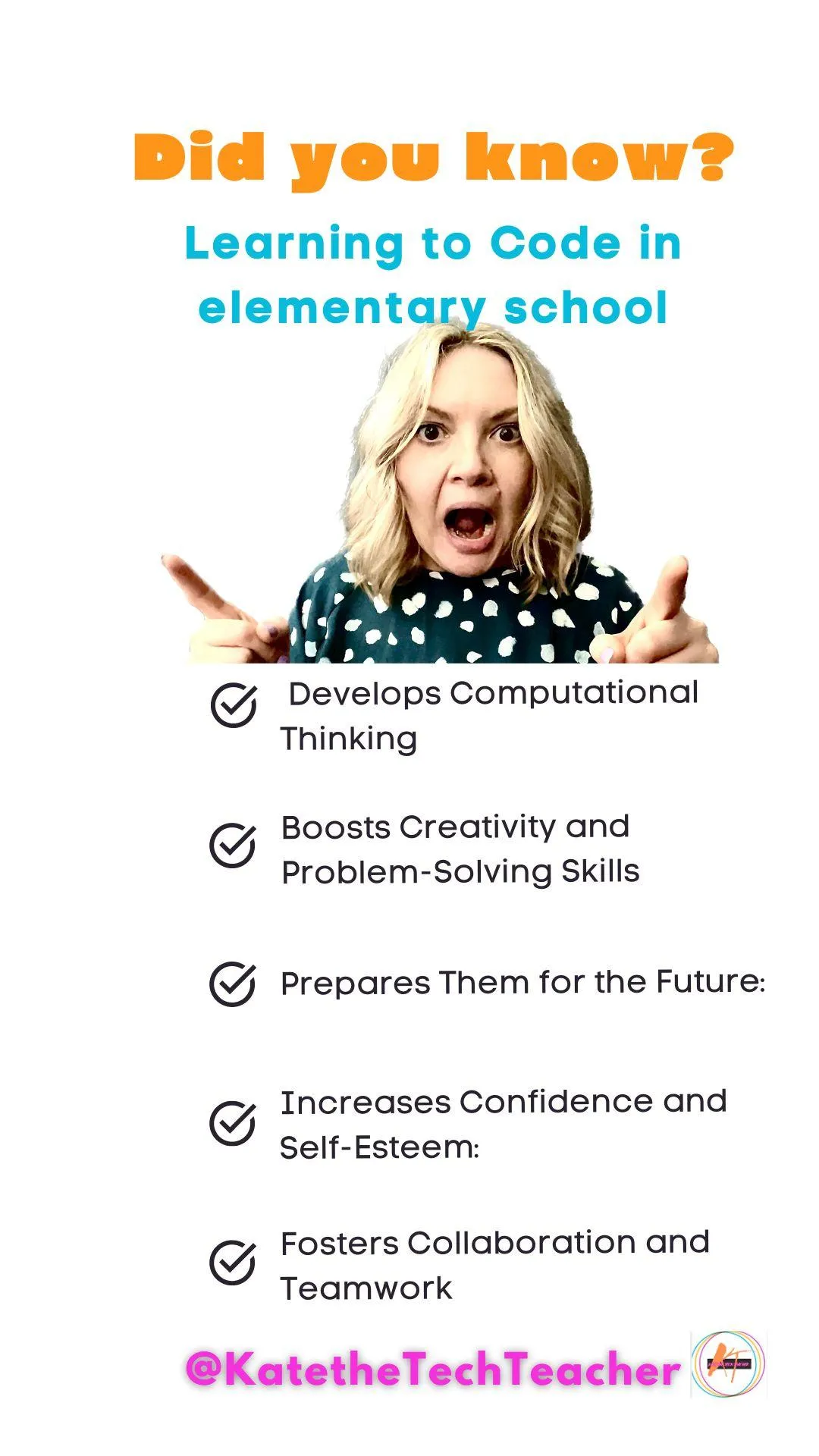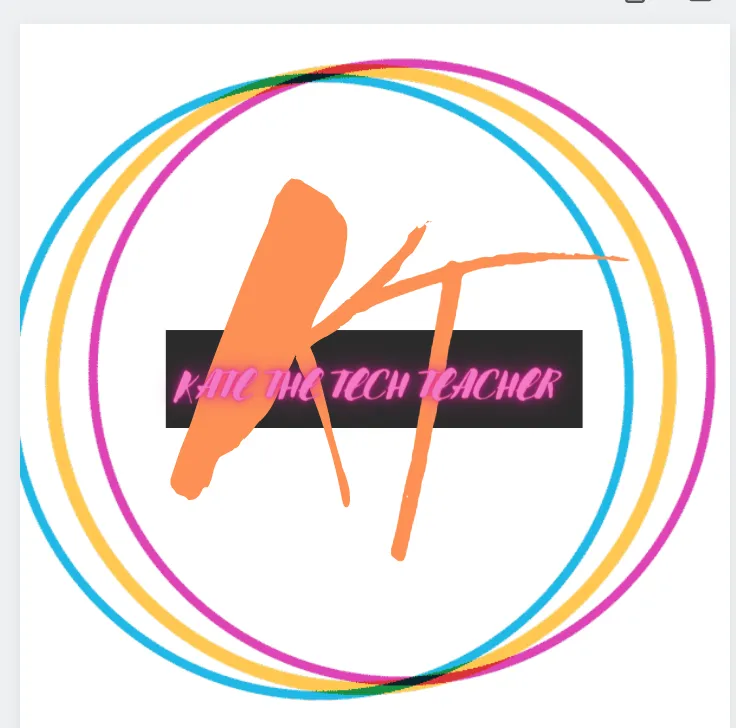Blog Posts
Unlocking the World of Coding: Empowering Elementary Teachers to Teach Coding with Confidence

How Coding in Elementary School Boosts Kids' Confidence and Self-Esteem
"Learning to code empowers kids to see themselves as capable creators, boosting their confidence and self-belief..” - Kate Hassey
Introduction:
In today's digital age, coding has become an essential skill, not just for future careers but for personal development as well. Introducing coding in elementary school can have profound effects on students' confidence and self-esteem. Here’s how learning to code at an early age contributes to these vital aspects of personal growth.
I've seen some amazing benefits, especially in how it helps kids build confidence and self-esteem. Let me tell you a story about a student of mine to illustrate this.

With that said, here are 5 reasons why elementary teachers needs to start teaching coding in their classrooms today 👊
1. Building Problem-Solving Skills and Resilience
One of the coolest things about coding is how it teaches kids to tackle problems head-on. They learn to break down tricky tasks into smaller, manageable steps, which really boosts their problem-solving skills. Plus, when they hit a snag, they get used to trying different solutions until something works. This resilience is super important because it helps them understand that making mistakes is just part of the learning process, not a reflection of their abilities.
A few years ago, I had a first grader who really struggled with math and reading. He had an IEP and some behavioral issues, which made him a bit of a handful in class. Despite these challenges, he was a sweet kid, and I could tell he just needed the right kind of support. I always make an effort to befriend students like him and figure out what makes them happy. He loved attention, so I made him my helper.
When I teach coding, I use the "I do, We do, You do" method. I go through a few puzzles step-by-step, demonstrating the process. Then, I have a student come to the board and model with a helper, or sometimes I have the whole class help out. When it was his turn, he was amazing at coding! He easily demonstrated the steps for the class and eagerly went back to his seat to continue on his own.
2. Encouraging Creative Expression
Coding is like a new form of art for kids. They get to create games, stories, and all sorts of projects that showcase their ideas. Seeing their creations come to life is such a confidence booster because it shows them that their unique ideas are valuable and worth sharing.
Coding gave this particular student an outlet to express his creativity in a structured way. He quickly became my master coder, flying through the levels and helping other students along the way. This role allowed him to showcase his talents, which he hadn't been able to do in other subjects. Seeing his projects come to life was a huge confidence booster for him.
3. Fostering Collaboration and Social Skills
Many coding activities are done in pairs or groups, which is fantastic for building teamwork and communication skills. Kids learn to share ideas, listen to others, and support each other’s efforts. These interactions help them feel more connected and confident in their social skills.
As my helper and master coder, he had to collaborate with his classmates, explaining how to solve problems and encouraging them when they struggled. This not only improved his social skills but also gave him a sense of responsibility and belonging in the class. His behavior improved significantly because he felt valued and important.
4. Providing a Sense of Achievement
There's nothing like the feeling of completing a coding project. Whether it's fixing a bug or finishing a game, the sense of achievement is huge. When kids see their hard work pay off, and get recognition from teachers and classmates, it really boosts their self-esteem. They start to believe in their abilities and feel proud of their accomplishments.
At the end of the year, I gave him the Technology Genius award for coding. He cried when he received it and later told another teacher that he never thought he would earn an award in school. That moment was incredibly powerful for him. He had gained a confidence he never had before because he knew he had earned that award through his hard work and talent.
5. Preparing for the Future
Lastly, learning to code gives kids a head start on skills they'll need in the future. Knowing they’re gaining abilities that are in high demand can really enhance their confidence. They start to see themselves as capable and ready for whatever comes next, academically and career-wise.
Learning to code gave him a new perspective on his abilities and potential. Knowing he had skills that were valuable and in-demand made him feel more confident about his future. It was a transformative experience for him, showing him that he could excel in something meaningful.
Why It Matters
Introducing coding in our classrooms isn’t just about teaching a tech skill; it’s about empowering our students. The problem-solving, creativity, collaboration, and recognition they experience through coding all play a huge role in building their confidence and self-esteem. By starting early, we’re helping them develop a strong foundation that will benefit them in so many areas of their lives.
For resources to help you get started with teaching elementary or middle school coding go to:
© KateThetechteacher.COM | ALL RIGHTS RESERVED | TERMS & CONDITIONS | SITE BY FUNNEL GORGEOUS

